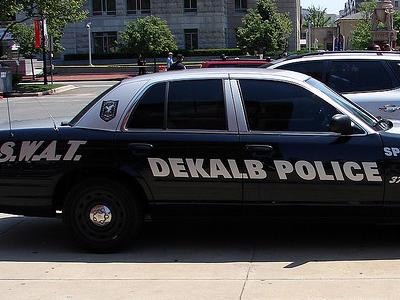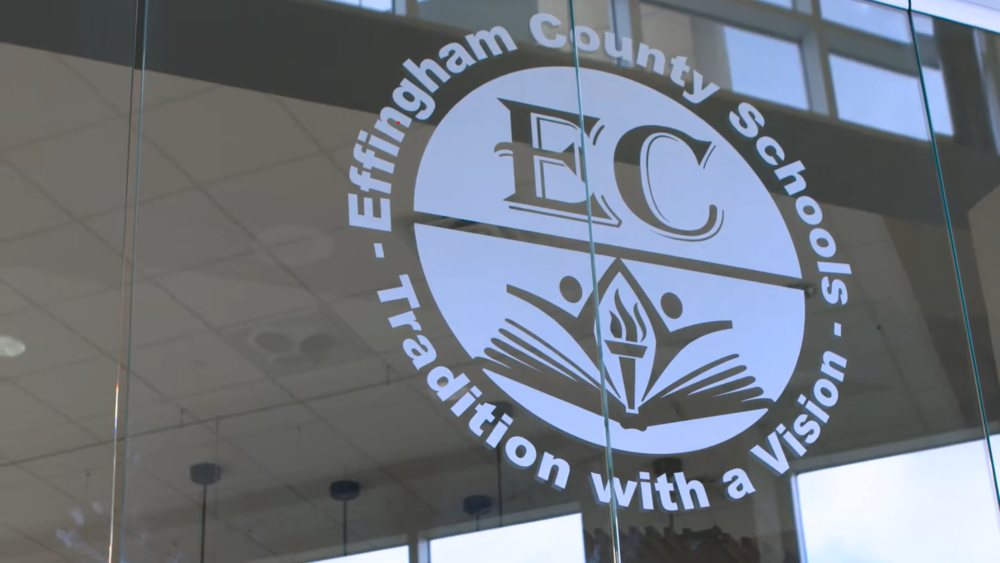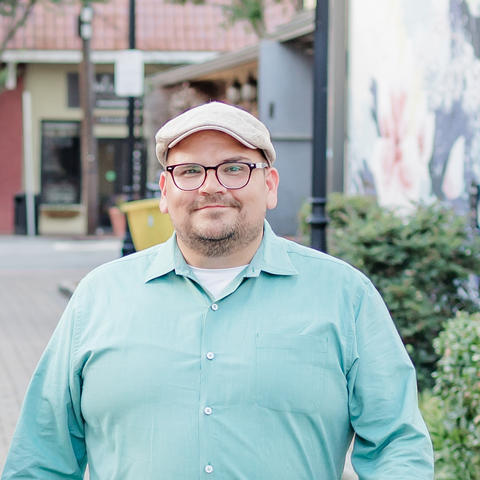
Section Branding
Header Content
Georgia Today: Jimmy Carter tributes, Medicaid for HIV+, DeKalb police accused of violating ADA
Primary Content
On the Monday Feb. 20 edition of Georgia Today: Well wishes for Jimmy Carter pouring in, Medicaid for HIV+ Georgians, DeKalb police accused of violating ADA

Peter Biello: Welcome to the Georgia Today podcast from GPB News. Today is Monday, Feb. 20. I'm Peter Biello. On today's episode, an outpouring of well-wishes for former President Jimmy Carter as he begins hospice care. A plan to expand Medicaid coverage to Georgians living with HIV takes a step forward in the Legislature. And DeKalb County police are accused of violating the Americans with Disabilities Act. These stories and more are coming up on this edition of Georgia Today.
Story 1
Peter Biello: Well-wishes for former President Jimmy Carter have poured in since the Carter Center announced on Saturday that he has decided to forgo further medical treatment and instead receive hospice care at home. At Maranatha Baptist Church in Plains, Georgia, where Carter taught Sunday school for decades. His niece, Kim Fuller, spoke about her uncle in a Sunday school lesson about legacy.
Kim Fuller: I think that the legacy that he's — he's got. You know, it just — it's mind boggling. To thing of the things that people are going to remember. It's going to be hard and it's going — but I know as well as I know my name that he's going to be gracious. He's going to be kind. And he does not want the people around him to suffer. He's going to want them to be gracious and kind with him.
Peter Biello: In Atlanta, well-wishers flocked to the Carter Center to pay tribute. Some driving for hours to pay their respects.

Story 2
Peter Biello: Transportation Secretary Pete Buttigieg says Atlanta-based freight rail company Norfolk Southern must make residents of a small Ohio town whole after a fiery derailment earlier this month released toxic chemicals in the area. In a letter yesterday to Norfolk Southern's CEO, Buttigieg says the company must, quote, "live up to its obligation to do whatever it takes to stop putting communities such as East Palestine at risk." Norfolk Southern CEO Alan Shaw issued a statement on Saturday saying he's met with town leaders, first responders and company employees who live in the area. The company also has created a website with updates: NSmakingitright.com.
Story 3
Peter Biello: The Georgia legislature's Public and Community Health Committee voted in favor of a plan to expand Medicaid coverage to Georgians living with HIV. GPB's Ellen Eldridge has the details.
Ellen Eldridge: Right now, Medicaid coverage in Georgia is only extended to people with full-blown AIDS. Identifying and treating HIV early saves lives and taxpayer money. If passed, HIV-positive folks would have access to care and medication which can prevent full-blown AIDS. Sharon Cooper is one of the bill's sponsors. She says preventing more serious illness costs $10,000 a year.
Sharon Cooper: If they go to a full-blown case of AIDS, it's about $30,000 a year. So it's a definite savings to the state, to us to take care of these people that are eligible for Medicaid.
Ellen Eldridge: Cooper says that $30,000 does not include the cost of hospitalization, which can cost taxpayers hundreds of thousands of dollars. For GPB News, I'm Ellen Eldridge.

Story 4
Peter Biello: The family of a man shot and killed by DeKalb County police officers two years ago is accusing the county of discrimination in the case. 35-year-old Matthew Zadok Williams died during what his mother, Chris Ann Lewis, says was a mental health crisis.
Chris Ann Lewis: My son's mental illness was criminalized that day. And those officers, they are victims themselves because they were sent out to do a job without the proper training.
Peter Biello: The DeKalb County district attorney called the shooting justified. Police body camera footage showed Williams coming at an officer with a knife, then running inside his home. The lawsuit filed in a federal court last week alleges the county's officer training violated the Americans with Disabilities Act.

Story 5
Peter Biello: A lawsuit accusing a Georgia school district of discrimination by barring students from wearing Black Lives Matter T-shirts has been dismissed at the request of attorneys for the students who filed the original complaint. A federal judge issued the order in Savannah on Friday. The student's attorneys said they are new to the case and plan to file a new version of the complaint later. The lawsuit accused school administrators in Effingham County of a broad pattern of racial discrimination. The three unnamed student plaintiffs said they were prohibited from wearing Black Lives Matter shirts to school events while white peers got to wear shirts with Confederate flags.
Story 6
Peter Biello: Emory University and the College of the Muscogee Nation are partnering to advance Indigenous studies and create more speakers of the Muscogee language. The university last week announced a $2.4 million grant from the Mellon Foundation that it's sharing with the college. Emory University American history professor Malinda Lowery says the partnership is part of what she calls a healing that's taking place on campus.
Malinda Lowery: Emory is historically part of that structure of alienating land and resources away from Native people. And now our priority is to support Native people as they are survivors.
Peter Biello: The university calls it a first of its kind partnership and one that could become a model for other indigenous nations and institutions of higher learning.
Story 7
Peter Biello: The Community Stakeholder Advisory Committee for the planned police training center in Atlanta was established to be the voice of people living near the site. Its members have provided feedback that Atlanta Mayor Andre Dickens says has altered the plan. For example, he says the committee's advice prompted the relocation of a shooting range farther from people's homes. Here he is speaking at an Atlanta Press Club event earlier this month.
Andre Dickens: They wanted sidewalks down a road. That was not there. As the community stakeholders will see, that'll be done. And without my notes there's about seven of those.
Peter Biello: Dickens says the committee is meant to represent its constituents, the people living near the site. In the same way city councilors represent people in their districts. But the committee is not empowered to approve or reject the project itself — and neither the Atlanta Police Foundation nor the contractors have any obligation to follow its advice. Recently, Nicole Morado stepped down from that committee and she is with me now. Why did you step down?
Nicole Morado: I resigned the day I learned that a protester was killed during the confrontation when they were clearing the site on January 18th. And I did that because I just really didn't feel comfortable being affiliated with a project that resulted in the loss of life.
Peter Biello: Mm hmm. From your perspective, was the committee successful at conveying the feelings of the people who live nearby?
Nicole Morado: I would say in some regards, but not so much in the fact that we were giving any input that would be outside of a normal development project when a company comes to the community to get approvals. You know, we were participating in those conversations. They were, you know, listening to those considerations around infrastructure and traffic, just as any other developer would when they're submitting their project for permitting and approval. So outside of that, though, I would say really there wasn't much consideration for things that maybe wanted more oversight around, like environmental or the programing on the site that was kind of made to seem like it wasn't necessarily in our purview.
Peter Biello: Do you feel like the Community Stakeholder Advisory Committee and the input it's received from people living nearby the site has been used by those in charge and in good faith, too, to make sure that the project is a good fit for that part of Atlanta? Or has it been sort of spun as a as a PR move — or maybe somewhere in between? What do you think?
Nicole Morado: Yeah, I think it would be somewhere in between because I think that those things would have had it been done regardless and —
Peter Biello: Like the solicitation of input would have been done regardless.
Nicole Morado: Yes. Yes. Because of whatever unique situation it is, being an unincorporated DeKalb County. But the land is owned by the state of Atlanta. They didn't have to follow normal, you know, development approvals that typically trigger meeting developers to go to neighborhood meetings, going to their neighborhood planning unit meetings and really sharing what's happening before they really kind of make an announcement and say, "This is what we're going ahead with. So those changes, as far as the sidewalks, moving the location, getting rid of the explosives thing — all of that would have been done regardless. And so to say that they're making all these changes and adjustments after the fact that they had sort of put this project without our awareness into our laps, it seems a little disingenuous.
Peter Biello: The committee has occasionally requested information from the Atlanta Police Foundation, as far as I understand it — please correct me if I'm wrong. And in some cases, the Atlanta Police Foundation has declined to provide that information. Can you tell me a little bit more about what that was like on the committee requesting information and being told, no, you can't have that?
Nicole Morado: I don't know if it necessarily ever was said as much as like, no, you can't have that. But it was sort of like, we're just not going to provide it. So, for instance, I asked about the supposed best practices that were going to be used for the training tactics that were going to be taught for the police officers, because obviously that's a big concern. Like, are we using the most innovative ways to reduce police violence and all of the harmful effects that we've been experiencing recently? And I said, can we see these best practices? You know, I'd like to see the research that is that is informing you all is programing. And, you know, sort of "Sure, we can," but it never surfaced.
Peter Biello: That seems like a big deal, in part because one of the major objections protesters have is are the police going to be further militarized at the site? And that's exactly what you were asking about, it seems.
Nicole Morado: Yes. Yes. And again, they just kept saying it's a 21st century, you know, training facility. I don't know what that means and just not really clarifying beyond generic terms like best practices that they're covering from other departments. But, you know, it doesn't really speak to a specific department that's actually seeing reduction in police violence.
Peter Biello: Earlier this month at an Atlanta Press Club event. Mayor Andre Dickens said that polls show people in Atlanta support the police training center. Here is what he said at the Atlanta Press Club.
Andre Dickens: The 69% of Atlantans say they want to have a public safety training center for police and firefighters. And even if we — when we polled on the name "Cop City," just to kind of see if we'd throw them off, as the misinformationists are doing, we got it at about 61%.
Peter Biello: So regarding that 69% support that Dickens mentioned, GPB reached out to the mayor's office to learn more about this poll. But we did not receive a response. However, Mayor Andre Dickens, his press secretary, told anyone alive that he could not find a poll that returned such a result. Nicole Morado, the mayor, is also not necessarily talking about people who live near the site. I'm wondering what you thought hearing Dickens cite that poll.
Nicole Morado: Yeah, I think that really kind of leans into the general community's understanding that, in fact, sure, there can actually be a need for this facility, Whether or not it needs to be in this particular location, I think, is really — I'd be curious whether or not those numbers would change.
Peter Biello: Did that issue ever come up in your discussion as a committee, whether it could be moved to another location?
Nicole Morado: It came up before the committee. We certainly have pushed and pushed and sort of brought that up several times. You know, I and my other neighbors brought it up with our commissioners. I know that our commissioners are — Larry Johnson and Ted Terry both mentioned alternatives that they could potentially use before, you know, we started convening. But I'm not sure why they are so adamant about this particular location, especially considering it's all, you know, ground up development.
Peter Biello: Well, Nicole Mercado, former member of the Community Stakeholder Advisory Committee for the planned Police Training Center in Atlanta. Thank you so much for speaking with me. I really appreciate it.
Nicole Morado: Thank you for having me.

Story 8
Peter Biello: North America's second-largest privately held Coca-Cola bottler is expanding. Coca-Cola United broke ground Friday on a warehouse expansion in Macon that is expected to create 50 new jobs. The facility serves 18 counties and distributes more than 7 million cases of Coca-Cola products annually.
Story 9
Peter Biello: And Savannah has been chosen to host the ECHL Hockey League's All-Star Game next year. Formerly known as the East Coast Hockey League, the ECHL plays two levels below the National Hockey League. The Savannah Ghost Pirates have seen high attendance in their first season selling out most games at Savannah's Enmarket Arena. One other Georgia team plays in the league: the Atlanta Gladiators in Gwinnett County.
Peter Biello: And that is a wrap on today's edition of Georgia Today. If you haven't yet subscribed to this podcast, take a moment and do it now. That way, we will pop up for you tomorrow in your podcast feed. If you've got feedback, we'd love to hear from you. Send us an email. The address is GeorgiaToday@GPB.org. And if you like what you hear, don't forget to rate us. That helps other listeners find us. I'm Peter Biello. Thanks again for listening. We'll see you tomorrow.
——
GPB's Georgia Today newsletter hits your inbox on Tuesdays, Wednesdays and Thursdays with top stories from around the state featuring news, politics and more. Subscribe here.



